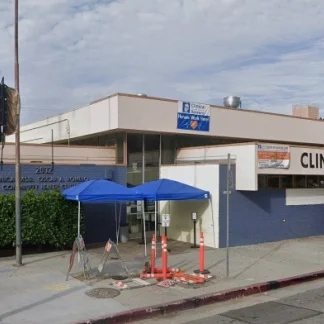Hannas First Step Treatment Center
Hannas First Step Treatment Center is an alcohol and drug rehab center that offe...
Clinica Monsenor Oscar A Romero is located in Los Angeles, California. They provide alcohol and drug rehab services, mental health treatment, and medical care services to homeless individuals located within the county. They also provide specialty support for mothers with children.
Clinica Monsenor Oscar A Romero strives to help individuals feel a sense of dignity and hope in their lives. Their services include:
Clinica Monsenor Oscar A Romero operates on an outpatient basis. Individual therapy, medical care, and addiction treatment are provided on-site in the streets of Los Angeles. Women with children may take advantage of assistance programs that provide parenting classes, safety birth classes, pregnancy testing, family planning services, and mental health treatment. This program was created to ensure that homeless populations receive care that is dignified and compassionate, while also supporting those who are unable to pay for treatment on their own.
Clinica Monsenor Oscar A Romero is not an insurance-based program. If a person has insurance and wants to use it for treatment of any kind, they are encouraged to contact the provider of their insurance because out-of-network benefits may vary. The program runs primarily on donations.
Contact us for more information: (323) 987-1030

Connect with Clinica Monsenor Oscar A Romero by calling their admissions team directly.
(323) 987-1030 Website Get DirectionsGroup therapy is any therapeutic work that happens in a group (not one-on-one). There are a number of different group therapy modalities, including support groups, experiential therapy, psycho-education, and more. Group therapy involves treatment as well as processing interaction between group members.
Trauma therapy addresses traumatic incidents from a client's past that are likely affecting their present-day experience. Trauma is often one of the primary triggers and potential causes of addiction, and can stem from child sexual abuse, domestic violence, having a parent with a mental illness, losing one or both parents at a young age, teenage or adult sexual assault, or any number of other factors. The purpose of trauma therapy is to allow a patient to process trauma and move through and past it, with the help of trained and compassionate mental health professionals.
Trauma therapy addresses traumatic incidents from a client's past that are likely affecting their present-day experience. Trauma is often one of the primary triggers and potential causes of addiction, and can stem from child sexual abuse, domestic violence, having a parent with a mental illness, losing one or both parents at a young age, teenage or adult sexual assault, or any number of other factors. The purpose of trauma therapy is to allow a patient to process trauma and move through and past it, with the help of trained and compassionate mental health professionals.
Hannas First Step Treatment Center is an alcohol and drug rehab center that offe...
Atlantic Recovery Services Charter III is a private rehab located in Los Angeles...
Children’s Bureau - Magnolia Place Family Center, in Los Angeles, California, of...
Gateways Hospital and Mental Health Center – Adult Residential offers residentia...